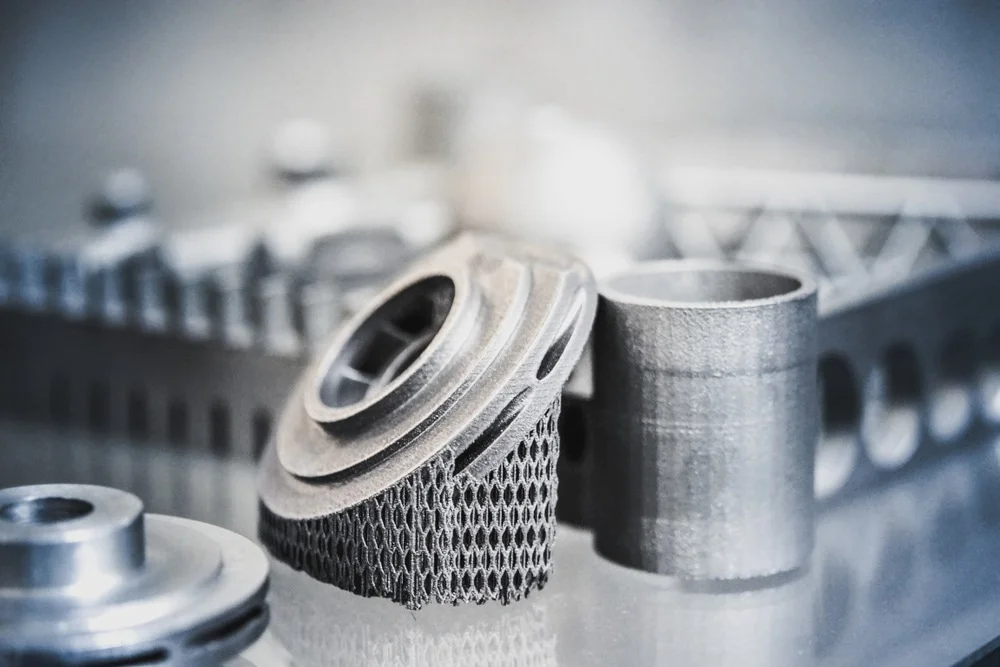ISO 16808 Small Punch Creep Testing of Metallic Materials
The ISO 16808 standard specifies a small punch creep testing method to determine the creep behavior and mechanical properties of metallic materials, especially under conditions where high-temperature and time-dependent deformation are critical. This test is particularly useful for evaluating the performance of materials in demanding environments such as aerospace, nuclear power, and chemical processing industries.
The process involves placing a small punch on a specimen, which is subjected to a constant tensile stress while being heated at a specified rate. The punch deforms over time due to creep, and the resulting deformation provides insights into the material's mechanical stability under prolonged load. This method offers several advantages: it requires smaller sample sizes compared to other tests like large-scale uniaxial tension testing, it can be performed quickly, and it provides detailed information about the material’s response to temperature and stress.
The ISO 16808 standard is applicable to various metallic materials, including steels, nickel-based alloys, titanium alloys, and cobalt-based superalloys. It is especially relevant for components that must endure high temperatures over extended periods, such as turbine blades or reactor pressure vessels. The test helps manufacturers ensure compliance with industry standards and safety regulations by providing robust data on material integrity.
The testing protocol involves several key steps: first, the specimen must be prepared according to specified dimensions and tolerances. Then, a small punch is positioned over the sample, and the system is heated to the required temperature at a controlled rate. Stress is applied using a hydraulic or mechanical device, causing the punch to deform. The deformation is monitored continuously, and data such as strain, stress, and temperature are recorded.
Quality Assurance (QA) in ISO 16808 testing includes precise control over heating rates, stress levels, and environmental conditions. Consistent specimen preparation ensures accurate results. Rigorous calibration of test equipment guarantees reliable measurements. Compliance with the standard’s requirements is paramount to ensure the validity of the test results.
The reported data typically include creep strain vs. time curves, which are critical for understanding material behavior under prolonged loading. These curves can help predict the service life of components and inform design decisions. The ability to tailor tests to specific conditions makes ISO 16808 particularly valuable in research and development (R&D) environments where new materials or processes are being evaluated.
In summary, ISO 16808 small punch creep testing provides essential information for assessing the mechanical integrity of metallic materials under high-temperature and time-dependent loading. This method is indispensable for quality assurance and compliance purposes in industries where material performance at elevated temperatures is critical.
Applied Standards
The ISO 16808 small punch creep testing standard is widely recognized and applied across various sectors, including aerospace, automotive, and energy. It aligns with other international standards such as ASTM E739-15, which also focuses on small punch creep testing but may have different application areas or specific requirements.
- ISO 16808:2014 Small Punch Creep Testing of Metallic Materials
- ASTM E739-15 Standard Test Method for Determination of Creep Properties by Means of the Small-Punch Creep Test
- EN ISO 16808:2014 Small Punch Creep Testing of Metallic Materials
The standard is designed to be consistent with other high-temperature testing methods, ensuring that results can be compared across different laboratories and industries. Compliance with these standards ensures reliability and consistency in material characterization.
Eurolab Advantages
EuroLab offers comprehensive ISO 16808 small punch creep testing services tailored to meet the needs of diverse clients, including quality managers, compliance officers, R&D engineers, and procurement specialists. Our state-of-the-art facilities and experienced technical staff ensure that tests are conducted with precision and accuracy.
- Expertise: Our team consists of highly trained professionals who stay current with the latest testing techniques and standards.
- Comprehensive Services: We offer a full range of services, from sample preparation to data analysis and reporting.
- Advanced Equipment: EuroLab utilizes cutting-edge equipment that meets or exceeds all relevant international standards.
- Quality Assurance: Our processes are meticulously controlled to ensure consistent and reliable results.
EuroLab’s commitment to excellence ensures that clients receive accurate, reproducible test data. We pride ourselves on providing services that meet the highest industry standards, supporting our clients in achieving their quality assurance goals.
Quality and Reliability Assurance
- Precision Calibration: All testing equipment is regularly calibrated to ensure accuracy.
- Data Validation: Multiple checks are performed during data collection to verify its integrity.
- Environmental Control: Testing environments are strictly controlled to maintain consistent conditions.
- Reproducibility: Tests are conducted multiple times under identical conditions to ensure reliability.
EuroLab’s stringent quality control measures guarantee that every test adheres to the ISO 16808 standard and provides reliable, reproducible results. Our rigorous approach ensures that clients can trust the data generated from our tests for making informed decisions about their materials and processes.





